There is another advantage of using topical creams for your gout pain. You can avoid any potential side effects because these creams are not harmful. On the contrary, drugs may have adverse effects. Moreover, some drugs react with other medications, and you have at least some risks from them.
How to Get Immediate Gout Pain Relief
Gout is the most common form of inflammatory arthritis–and arguably, the most painful. Gout flare-ups are typically accompanied by severe pain. The affected joint (often the big toe) is also often red, swollen, hot, and excruciatingly tender to touch.
If you’re looking to relieve gout pain fast, we have tips—but true relief comes with timely and ongoing treatment. Read on to learn about the cause of gout, treating gout symptoms, and how to reduce flares and other health issues over time through an ongoing treatment plan.
Treating Gout & Pain
diagnosis–right from the first flare–is the most important step for gout relief.
Once gout is identified, it’s important to work with your doctor and create an action plan.
Below are some tips for not only getting immediate gout pain relief but also helping to fight gout for the long haul.
Medications
From pain relief to prevention, there are several types of medications that to treat gout.
Your doctor will identify a proper medication plan. It’s important to take medications as prescribed.
Inflammation & Pain Relief
When having a gout attack, pain relief and reducing inflammation is a top priority.
Your doctor may recommend over-the-counter or prescription medications to relieve pain and inflammation. These should be taken as soon as symptoms appear.
NSAIDs
Nonsteroidal anti-inflammatory drugs (NSAIDs) are one of the standard methods of pain management when it comes to acute gout attacks.
Common over-the-counter options to reduce inflammation and pain include Advil®, Aleve® and Motrin®. Prescription options may include Celebrex®, Indocin® or Naprosyn®. These may be taken at maximum recommended doses until the pain subsides.
Colchicine
Colchicine helps to reduce swelling and inflammation during an acute attack but has a different mechanism of action than NSAIDs.
Colchicine is most effective when taken within the first 12 hours of an acute attack. The sooner it is taken, the sooner you may experience relief.
Your doctor may recommend taking two tablets together at once and as soon as possible after the pain begins. A third tablet is typically taken one hour later, followed by one tablet 2-3 times/day for a week.
Your doctor may prescribe name brands like Colcrys® and Mitigare®
Glucocorticosteroids
Glucocorticoids are another treatment that can help reduce inflammation during a gout attack. Glucocorticoids can be taken orally or may be injected into the affected area.
Your doctor may prescribe oral name brands like Deltasone® (prednisone), or intramuscular forms such as Kenalog®-40 or Medrol®.
Urate-Lowering Therapies
Gout flareups most commonly start in the big toe, but it’s not uncommon for gout to affect other joints as well. If you’ve had one gout flare, you’re likely to have another—even if it’s not for months or even years.
While it may seem like you have your gout under control, uric acid buildup can cause future flares, severe damage, and other health issues. Because of this, it’s important to take ongoing steps to reduce uric acid levels.
Most people with gout need to take daily uric acid-lowering medications. Common medications used to lower uric acid include allopurinol and febuxostat.
Allopurinol may be known as Lopruin® or Zyloprim®, while febuxostat may go by Uloric®.
Both allopurinol and febuxostat are oral medications. They are gradually increased over time to lower uric acid levels. It is important to stay on some anti-inflammatory medication for four to five months after starting a uric acid-lowering drug to prevent future attacks and other health issues.
Once you develop gout and begin medications, you will likely be on urate lowering therapies for life.
Seeking Medical Care
Primary Care Physician
Once you experience your first gout flare-up, your family care or primary care physician (PCP) will likely be your most common source of care.
If you haven’t yet been diagnosed with gout, your PCP will likely take serum urate blood tests to confirm a diagnosis.
Once gout is confirmed, your PCP will recommend gout treatments to lower your uric acid levels. Your doctor can also prescribe or recommend medications to relieve pain caused by flares.
If possible, it’s recommended to make a same-day appointment with your PCP when you notice symptoms of acute gout flare-ups. If this is not possible, you can visit an urgent care clinic.
You should plan to visit your PCP (or whoever is treating your gout) every six months to have your uric acid level checked and ensure they are at 6.0 mg/dL or below.
Rheumatologists
Your PCP may refer you to a rheumatologist to treat your gout. They are equipped to treat rheumatologic diseases, like rheumatoid arthritis and gout—which is the most common form inflammatory arthritis.
When acute gout develops into later stages, such as recurring or chronic/advanced gout, it is even more important to consult with a rheumatologist.
After years of unchecked uric acid levels and repeated attacks, urate crystals can cause severe joint pain and lead to debilitating deformities and other health issues. Rheumatologists will help attack the root cause of these symptoms to prevent gout flare-ups in the future.
Nephrologists
Nephrologists are medical professionals who treat health issues involving the kidneys. Because gout and kidney health are closely linked, those who have gout may see both a rheumatologist or primary care physician alongside a nephrologist.
When kidneys are not functioning properly, excess uric acid production can increase. Those who have gout are more likely to develop kidney disease and kidney stones, and those with renal health issues are more likely to develop gout.
Other Steps for Gout Management
Beyond taking the right medications, there are other steps you can take to reduce gout flares and relieve gout pain.
During a Flare: Rest
Rest the affected joints for at least 24 hours after initial gout attacks to help speed recovery and reduce further damage.
During a Flare: Ice
Icing the inflamed joint is another helpful way to relieve pain. It is important to note that this may not be possible in the early stages of a flare because of tenderness in the joint and should only be done once tolerable.
Ongoing: Eating a Healthy Diet
high uric acid levels and the buildup of uric acid crystals around a particular joint or tendon.
While gout most often affects the big toe joint, it can also affect other joints in both upper and lower extremities.
Uric acid crystals are deposited around joints over time when there is too much uric acid in the blood. This accumulation can lead to flares or “attacks.”
Flares are caused by inflammation, which can lead to tremendous pain. Those suffering from a gout flare up are likely to seek ways to relieve gout pain fast.
About Uric Acid
Uric acid occurs naturally in the body when purines (found in foods like red meat, shellfish, etc.) break down in the body. Everyone has uric acid in their system, but too much can lead to developing gout and other health issues.
Prolonged periods of time with excess uric acid in your system (>6.8 mg/dL) is called hyperuricemia.
This can also lead to crystals and tophi (large collection of crystals) forming around other joints, like the big toe, ankle, knees, wrists, elbows, and more.
Once urate crystals build up, the risk for a sudden gout attack increases.
Other Factors for Gout Development
gout diet,” several foods have been known to trigger gout attacks—especially when uric acid levels are not under control.
Those with gout should limit purine-rich foods—like red meat, shellfish, and organ meats—that can increase uric acid levels, but it is not necessary to totally eliminate these foods. It is also helpful to avoid diets that focus on high-protein intake. Excessive alcohol intake, especially beer, should be avoided.
High fructose corn syrup and processed foods should be eaten in moderation.
Other Risk Factors
There are several other factors that can trigger gout flares. Those who are obese or have a high body mass index (BMI) are more likely to be at risk.
Other health conditions–such as diabetes, kidney stones or kidney health issues, heart attack, and stroke–can also put one at risk for gout attacks.
Ongoing: Lifestyle Changes
While taking daily uric acid-lowering medications are key, not making other lifestyle changes can make gout worse. Those with gout may be asked to lose weight or exercise regularly to maintain a healthy body weight. It is also important to stay hydrated and drink plenty of water to maintain good kidney function.
Conclusion
Gout is a type of arthritis that results from high levels of uric acid in the blood. When left untreated, gout can cause severe pain and inflammation in the joints. Gout flare ups are often accompanied by intense throbbing or a burning sensation in the affected area, as well as swelling and redness. Uric acid crystals can also accumulate around other joints, leading to more frequent and severe gout attacks.
If you are experiencing any of these gout symptoms, it is important to consult with your doctor to get started on treatment right away.
Immediate Gout Pain Relief – 7 Best Options
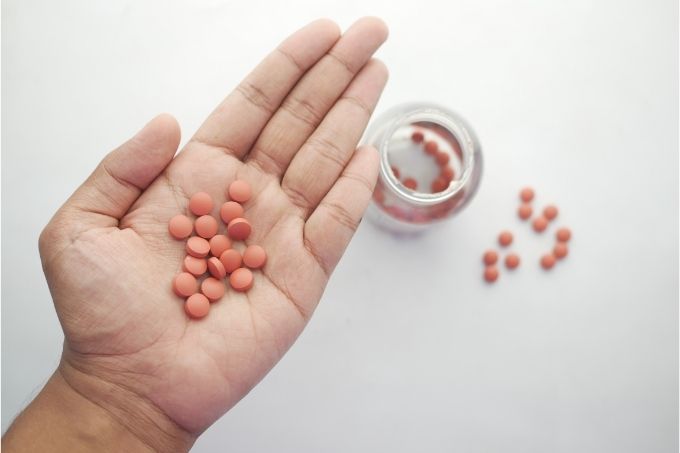
Gout is one of the medical conditions affecting the big toe and some other joints. You will have pain and swelling in your joints. Although your big toe has a small joint, the first gout attack mostly occurs in this part. However, as the pain is unbearable, patients always desire immediate gout pain relief.
There are multiple treatment options available for gout. You can treat your gout in the knees, ankles, fingers, wrists, and elbows. But, most of the common treatments take time to show results. Thus, how will you get the desired results within the shortest time?
Apply ice compression
You may take some steps to control swelling and pain of the affected joints. For instance, you can apply ice compression techniques to alleviate the pain. Moreover, you need to avoid drinking alcohol and stay hydrated.
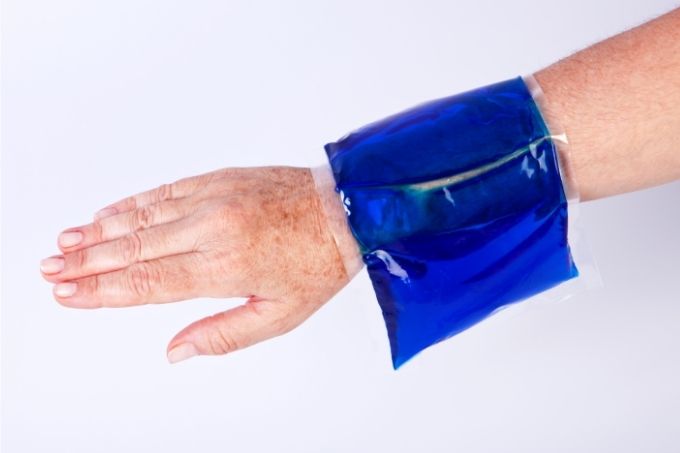
Ibuprofen
Medications from physicians will also be useful for treating pain from gout. Anti-inflammatory drugs like ibuprofen will prevent the pain from an acute gout attack. But, you must take the drug early to achieve the result.
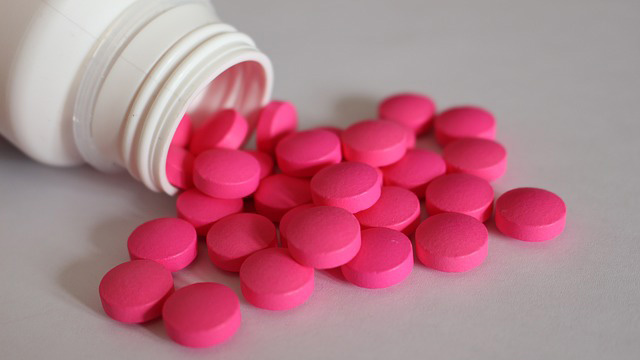
Colchicine
Similarly, colchicine is another drug to stop gout pain. Make sure that you have taken it within the first few hours of the attack. Take a colchicine table thrice a day to find the effective result. After a week, you can take two tablets a day. However, you must consult a physician before taking any drug.
Both these drugs are effective in treating acute gout conditions, and their actions are different. However, healthcare specialists mostly prefer colchicine to alleviate acute attacks, as it works fast and patients do not have adverse reactions.
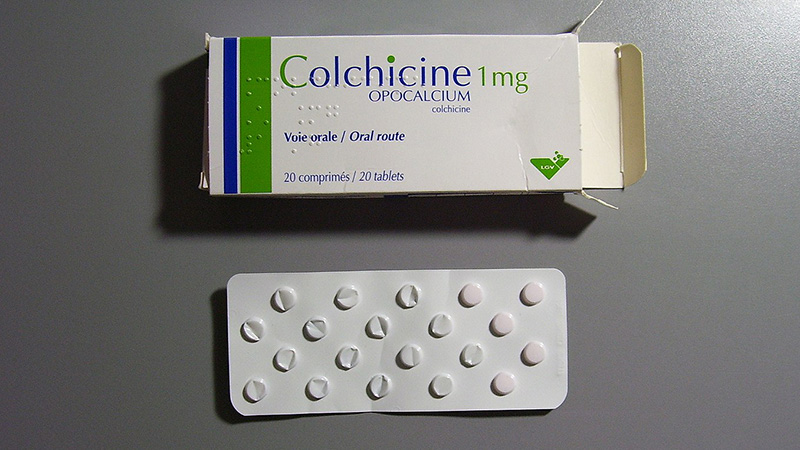
Cortisone shot
Cortisone is a potent anti-inflammatory steroid medicine working immediately to reduce the intensity of gout pain. It is easy to take cortisone orally. However, there are some common side effects of taking it. Researchers have found that cortisone injected into the affected joint can give a faster and better result. For instance, to treat severe gout conditions of your feet and big toes, you can choose Cortisone injection.
The healthcare specialist will rely on ultrasound technology to inject the needle into your joint. This technology will make the result much accurate.
Consult your doctor before taking a cortisone injection for immediate gout pain relief. Do not delay in having this injection. You will find the result within the shortest time.
PRP injections
In some special cases, doctors prescribe PRP shots for their gout patients. These anti-inflammatory injections will provide you with a highly beneficial effect. Especially, when your joint has osteoarthritis and other degenerative conditions, these PRP injections will be highly effective.
Nevertheless, some researchers have claimed that PRP injections are less effective than cortisone. While you have a risk from cortisone shots, PRP is the alternative.
Arthritis like gout causes damage by breaking down tissue, which helps in the proper cushioning of joints. That is why you feel pain while the bones have friction against each other together. Due to arthritis, your joint lining may also have inflammation.
PRP shots promote the restoration of the damaged tissues within the shortest time. By using blood platelets from your body, PRP treatment providers ensure natural healing.
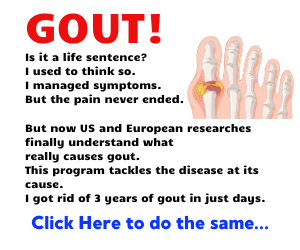
Creams
Regular intake of oral medications will surely lower your uric acid buildup. But, you will still feel swelling and severe pain in gout-affected parts. That is why you can use special creams to alleviate pain from gout. The right application of the cream will be effective in decreasing the level of pain.
There is another advantage of using topical creams for your gout pain. You can avoid any potential side effects because these creams are not harmful. On the contrary, drugs may have adverse effects. Moreover, some drugs react with other medications, and you have at least some risks from them.
Change your lifestlye
To control your gout flare-ups, you have to reduce your uric acid. Your lifestyle may need some adjustments. Lose your weight, reduce alcohol intake, and have a proper diet.
Try to avoid foods containing a high level of purines. Sardines, prawns, anchovies, and some meats are risky for you. Moreover, foods and drinks with high fructose sugar will be valuable to you. Frozen foods, canned foods, and other yeast-based foods may also cause a problem. Do not drink sugar-sweetened beverages every morning. Low-fat dairy products, Vitamin C, and other vegetarian diets are safe for gout.
Conclusion
These are some preventive steps for gouts. But, for immediate gout pain relief, you can rely on modern treatments. The best treatments will give you comfort, and you can keep away from the gout symptoms.
The Gout Eraser™: The all-natural guide for permanent gout removal
The Gout Eraser™ is a short, to the point guide on how to reverse gout symptoms without ever leaving your home. The guide goes into extensive detail on exactly what you need to do to safely, effectively and permanently get rid of gout, and you are GUARANTEED to see dramatic improvements in days if not hours.
To learn more about The Gout Eraser™ system, check out the following free video presentation: The Gout Eraser™






